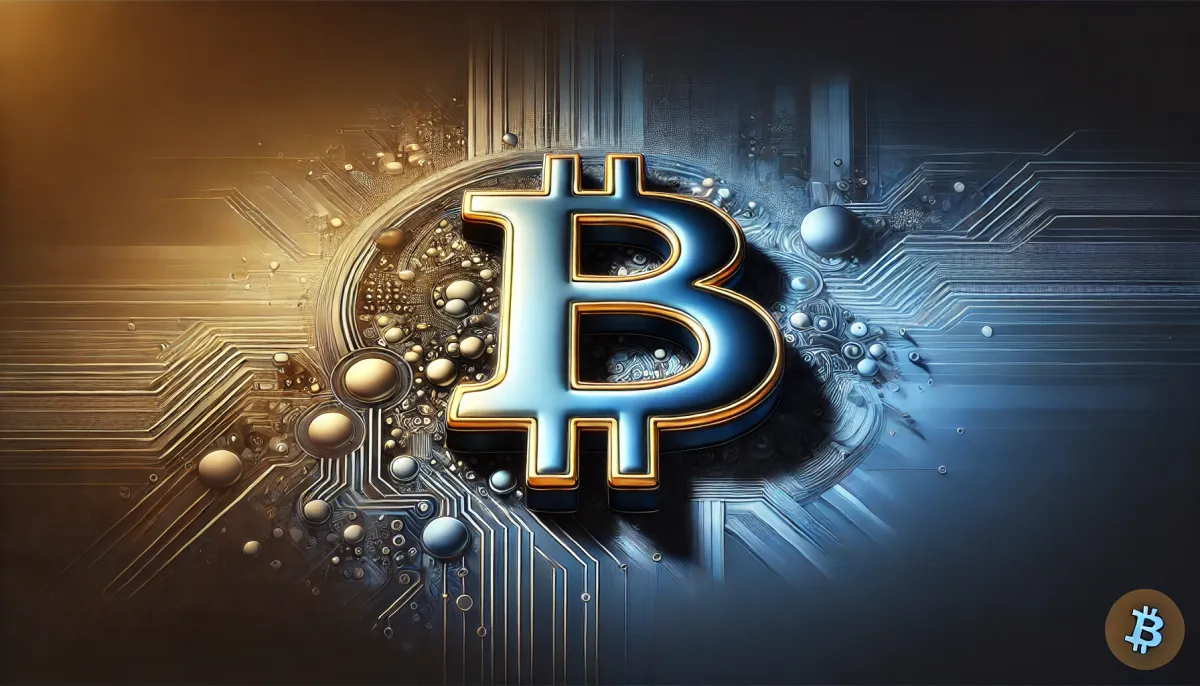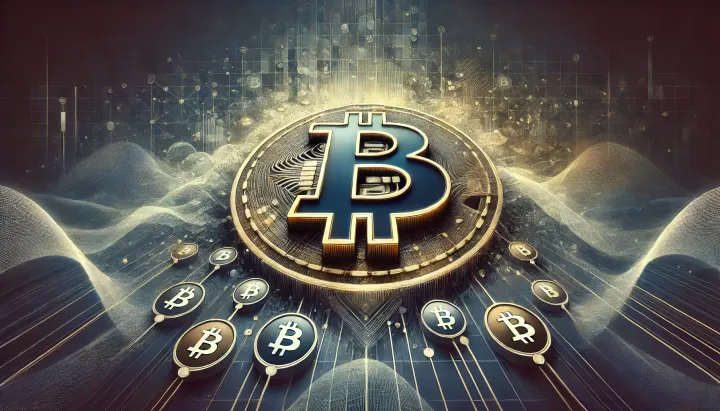Unlocking Bitcoin for Boomers: Strategic Insights on Bitcoin Adoption and Wealth Generation
The November 5, 2024 episode of the Rajat Soni podcast features Gary Leland explaining how to educate Baby Boomers about Bitcoin, emphasizing the importance of dispelling misconceptions and clearly communicating Bitcoin's nature as a digital, non-physical asset.

- My 'briefing notes' summarize the content of podcast episodes; they do not reflect my own views.
- They contain (1) a summary of podcast content, (2) potential information gaps, and (3) some speculative views on wider implications.
- Pay attention to broadcast dates (I often summarize older episodes)
- Some episodes I summarize may be sponsored: don't trust, verify, if the information you are looking for is to be used for decision-making.
Summary
The November 5, 2024 episode of the Rajat Soni podcast features Gary Leland explaining approaches for engaging Baby Boomers with Bitcoin, addressing challenges in understanding Bitcoin’s digital nature and advocating practical strategies like dollar-cost averaging and Bitcoin ETFs. Leland also explores Bitcoin’s broader implications for financial independence, inflation resilience, and potential generational wealth, offering a guide for Boomers to navigate this emerging digital asset.
Take-Home Messages
- Bitcoin: A New Asset Class - Bitcoin is a digital asset, not a physical coin, offering a unique value proposition for those seeking diversification beyond traditional investments.
- Dollar-Cost Averaging Simplifies Entry - For newcomers, dollar-cost averaging is a straightforward strategy, allowing gradual investment in Bitcoin without needing to time the market.
- Self-Custody Ensures Ownership - True Bitcoin ownership requires control over private keys, which can empower investors through self-custody rather than relying on third parties.
- Inflation Hedge and Wealth Protector - Bitcoin’s fixed supply positions it as a potential hedge against inflation, especially appealing in an environment of currency devaluation.
- Generational Wealth Potential - A modest, consistent investment in Bitcoin could lead to long-term wealth building, offering financial security for future generations.
Overview
The November 5, 2024 episode of the Rajat Soni podcast features Gary Leland explaining his approach to Bitcoin for Baby Boomers, emphasizing clarity and gradual engagement, and addressing prevalent misconceptions about Bitcoin’s digital, non-physical nature. He introduces Bitcoin as a separate asset class, encouraging Boomers to see it as a long-term store of value. He advocates for dollar-cost averaging (DCA) as a strategic way for beginners to accumulate Bitcoin without facing the pressures of market timing. This strategy resonates particularly with Baby Boomers, who may be more accustomed to traditional investments. Additionally, Leland promotes Bitcoin ETFs as an accessible entry option for those hesitant to hold digital assets directly, a choice that can ease the initial entry for more conservative investors.
A strong proponent of self-custody, Leland explains that managing private keys is integral to Bitcoin ownership. While terms like “wallet” and “mining” often confuse newcomers, he views self-custody as a foundational aspect of Bitcoin, representing financial control and independence. His personal experience with transitioning his investments into Bitcoin underscores the significance of this practice. Leland’s insights are particularly relevant for Boomers, who may need additional support in understanding the importance of security in managing digital assets.
The conversation also highlights Bitcoin’s potential as an inflation hedge and wealth-building tool. Leland discusses Bitcoin’s limited supply as a factor that could mitigate inflation’s impact over time, appealing to those concerned about fiat currency depreciation. He believes Bitcoin can be a generational wealth vehicle, accessible even to those with modest initial investments. Leland stresses that such a shift requires a mindset change toward long-term value accumulation, setting up Bitcoin as a viable option for legacy building. He ends with a pragmatic suggestion: even a small percentage of one’s portfolio allocated to Bitcoin could yield considerable benefits over time, enhancing financial resilience.
Stakeholder Perspectives
- Baby Boomers: Bitcoin remains a complex asset, yet Leland’s framing of Bitcoin as a unique digital asset simplifies initial understanding. Boomers interested in diversification may find his DCA strategy appealing.
- Financial Advisors: Advisors traditionally reluctant to recommend Bitcoin may be more open to discussing Bitcoin ETFs, especially as client demand increases.
- Institutional Investors: Institutional interest in Bitcoin ETFs increases demand, which may affect availability for retail investors, potentially creating new dynamics in market pricing and scarcity.
- Policy Analysts: Policymakers may look at Bitcoin’s implications for inflation control and fiscal discipline, with potential regulations based on Bitcoin’s popularity as a stable, non-inflationary asset.
Implications
As Baby Boomers and institutional investors enter the Bitcoin space, Bitcoin adoption strategies like dollar-cost averaging may broaden market engagement. This shift could foster a financial mindset centered on gradual wealth accumulation, moving away from the traditional consumer-driven debt cycle. Moreover, Bitcoin ETFs represent an accessible gateway for those wary of handling digital assets, contributing to Bitcoin’s adoption within mainstream finance.
In policy circles, Bitcoin’s limited supply and independence from fiat systems could prompt new regulations addressing its role as a hedge against inflation. As Bitcoin becomes more embedded in financial planning, it may influence broader fiscal strategies, potentially encouraging more responsible spending behaviors at institutional and individual levels. This momentum could result in greater demand, further reducing Bitcoin’s availability on exchanges and driving its appeal as a high-value asset in a global financial landscape.
Future Outlook
The path ahead for Bitcoin adoption is likely to expand as more Baby Boomers embrace Bitcoin for its generational wealth potential. This trend could gain traction under favorable policies, particularly if the U.S. supports Bitcoin as a tax-advantaged asset. Institutional demand through Bitcoin ETFs may tighten Bitcoin’s circulating supply, contributing to gradual price appreciation and mainstream acceptance.
At the same time, educating Baby Boomers and newcomers on self-custody and inflation resilience remains essential. As awareness of Bitcoin’s fixed supply grows, traditional consumer attitudes may shift, encouraging a more savings-oriented approach. This shift could redefine financial priorities, placing long-term value preservation above short-term consumption. In this context, Bitcoin’s role as an investment vehicle may evolve from a speculative asset to a staple in diversified portfolios.
Information Gaps
- How do specific misconceptions among Baby Boomers affect their willingness to invest in Bitcoin? Misunderstandings about Bitcoin as a physical asset or stock-like investment create barriers, especially for Boomers with limited digital familiarity. Addressing these gaps can provide clearer, more accurate framing that aids Bitcoin adoption.
- What are the primary factors influencing the perception of Bitcoin as a reliable inflation-resistant asset? As Bitcoin’s fixed supply is often cited as an inflation hedge, examining factors that influence public perception is essential. Identifying these factors could strengthen Bitcoin’s reputation as a long-term inflation-resilient asset, drawing more interest from those looking to protect wealth.
- How does Bitcoin ETF adoption influence overall market behavior and liquidity? As Bitcoin ETFs gain popularity, understanding their impact on Bitcoin’s liquidity, availability, and pricing is crucial. This question explores the effects of ETF-driven demand on retail investor access and overall market dynamics.
- How might Bitcoin adoption change consumer attitudes toward debt and savings? Bitcoin’s emphasis on finite supply could encourage savings-oriented behavior, contrasting with current debt-driven economic patterns. Examining this shift offers insights into how Bitcoin could influence consumer financial habits long-term.
- What are effective educational strategies to improve Bitcoin literacy among older generations? Baby Boomers face unique challenges in understanding Bitcoin, making tailored educational approaches essential. Addressing these educational needs could bridge generational knowledge gaps and drive broader adoption.
Broader Implications
Generational Wealth and Financial Independence
Bitcoin’s potential to support generational wealth could shift traditional approaches to inheritance and legacy planning. For Baby Boomers, who might view Bitcoin as a hedge against inflation and fiat devaluation, investing in Bitcoin introduces the idea of wealth preservation across generations. This shift might lead to increased demand for educational resources, ensuring families understand how to manage and secure Bitcoin holdings effectively.
Inflation Hedge and Fiscal Discipline
Bitcoin’s limited supply and resilience against inflation may encourage a broader rethinking of fiat-based economies, particularly among policymakers seeking stable financial frameworks. As Bitcoin adoption grows, governments may face pressure to implement fiscal policies that limit inflationary spending, aligning more closely with Bitcoin’s non-inflationary attributes. This influence could reshape national spending priorities, potentially encouraging more conservative and sustainable fiscal practices.
Education on Digital Sovereignty
The emphasis on self-custody and digital sovereignty highlighted in the broadcast underscores Bitcoin’s unique position as a secure, independent asset. Education on digital sovereignty—particularly among less tech-savvy populations—may bridge knowledge gaps, helping individuals adopt self-custody practices with confidence. This broad educational shift could advance Bitcoin’s role as a financially sovereign asset, fostering a new culture of personal responsibility and control over digital assets.
Political Influence on Bitcoin Market Dynamics
Political shifts, especially in the U.S., could heavily impact Bitcoin adoption through regulatory support or opposition. As Bitcoin gains traction, upcoming elections and policy shifts will likely shape the landscape, determining accessibility and influencing institutional adoption. This regulatory environment could create opportunities for Bitcoin to align more formally with traditional financial systems, fostering integration while possibly challenging its decentralized ethos.



Comments ()